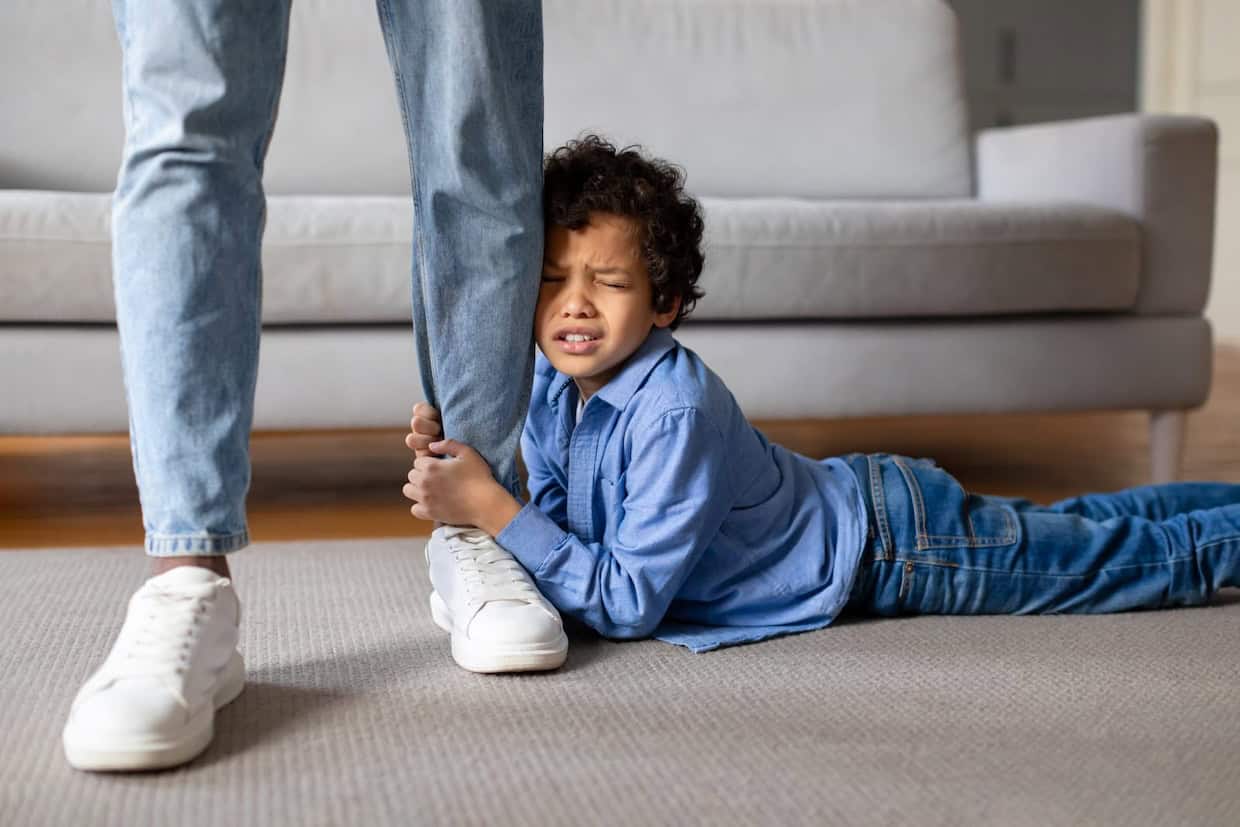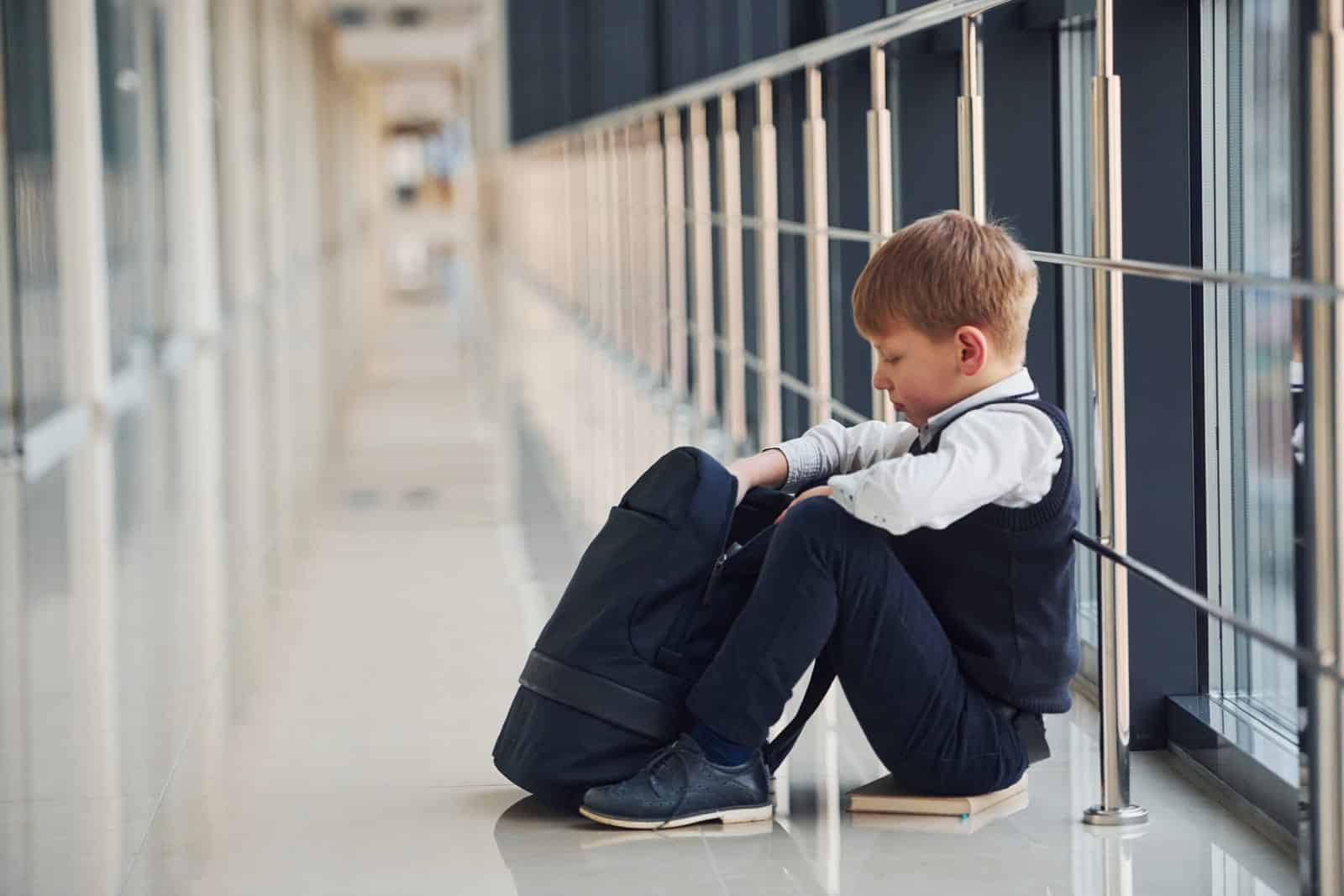Among the various styles identified by psychologists, uninvolved parenting often raises the most concern due to its long-term negative impact on kids. But what exactly is it, and how can you avoid it?

What is uninvolved parenting?
Uninvolved parenting, as the name suggests, involves limited interaction between the parent and the child. Psychologist Diana Baumrind, who first classified parenting styles in the 1960s, described uninvolved parents as those who are detached, indifferent and emotionally distant. These parents provide for the child’s basic needs but are largely absent from their emotional and social development.
Root causes of uninvolved parenting
Uninvolved parenting can stem from a variety of factors, each contributing to a parent’s detachment from their child’s life. Personal issues such as mental health problems, substance abuse or overwhelming stress can hinder a parent’s ability to engage effectively. Economic pressures and demanding work schedules may also leave parents with little time or energy to devote to their kids.
Additionally, overly permissive parenting, stemming from a lack of parenting knowledge or poor role models from their own upbringing, can make parents unsure of how to interact with and support their kids. The downside of digital technology and its pervasive influence can also contribute, as some parents become more attached to their devices than to their kids. Understanding these underlying causes is crucial for addressing and mitigating the effects of uninvolved parenting.
Signs of uninvolved parenting
So, how do you know if you’re unintentionally slipping into uninvolved parenting? Here are some red flags.
- Emotional disconnect: Do you find yourself emotionally distant from your child? Are hugs and expressions of ‘I love you’ a rarity? Kids raised by emotionally distant parents often struggle to form healthy attachments later in life.
- No rules household: Are there no rules, chores or expectations at home? Uninvolved parents often fail to set boundaries or consequences, leaving their kids confused about appropriate behavior.
- Ghost at the PTA meeting: Do you find yourself constantly skipping parent-teacher conferences or school events while your child craves your presence and involvement in their lives?
- Friend or parent? Do you see yourself more as your child’s friend than their parent? While a healthy friendship is important, kids still need parental guidance and discipline.

The negative effects of uninvolved parenting on kids
The consequences of uninvolved parenting can be far-reaching and long-lasting. Here’s how a lack of parental involvement can impact kids.
Effects on emotional development
One of the most profound impacts of uninvolved parenting is on a child’s emotional development. Kids need emotional support and validation from their parents to develop healthy self-esteem. Without this support, they often feel neglected and unimportant. Research in the Journal of Child Psychology and Psychiatry shows that kids who perceive their parents as neglectful frequently struggle with low self-worth and may have difficulty forming healthy relationships later in life. They might internalize feelings of worthlessness, leading to anxiety and depression.
“As a past children’s social worker, I have had experience with uninvolved parents, not only in my career but also in my personal life. It is very sad to see as these children often act out to gain their parent(s)’ affection and acceptance. I wouldn’t hesitate to say that there is often a negative outcome in this style of parenting.”
— Christina Conte, Christina’s Cucina
Behavioral issues
Kids look to their parents for boundaries and guidance on learning essential life skills. When these are absent, kids might not learn appropriate behavior or self-discipline. This lack of structure can cause kids to act out, struggle with self-control and have trouble following rules at school. According to a study published in the Journal of Child and Family Studies, kids with uninvolved parents are more likely to exhibit behavioral problems and have a harder time controlling their impulses.
Academic performance
Uninvolved parenting also takes a toll on a child’s academic performance. Kids who do not receive adequate support and encouragement from their parents often struggle with motivation and concentration in school. They may not see the value in education or lack the confidence to excel.
Long-term impacts on mental health
Chronic feelings of neglect and emotional abandonment during childhood can lead to a range of mental health issues in adulthood. A study in Psychology Today indicates that adults who experienced neglectful parenting are at a higher risk of developing chronic depression, anxiety disorders and other psychological problems. The lack of a nurturing and supportive environment during formative years can leave lasting scars, making it difficult for these individuals to lead fulfilling and emotionally healthy lives.

Steps to increased parental involvement
The good news is that it’s never too late to become a more involved parent. Here are a few tips.
- Start small: Begin by incorporating small changes into your routine, like having regular family dinners or setting aside dedicated cuddle time with your child each day.
- Communication is key: Talk to your child. Ask them about their day, their interests and their worries. Listen actively and create a safe space for open communication.
- Set boundaries with love: Children need clear expectations and boundaries. Establish consistent rules and consequences starting from toddler age, but make sure they understand the why behind them.
One last thing
While the challenges of modern life can make it difficult for parents to always be present, recognizing the critical role they play in their children’s lives is essential. Remember, you are the biggest influence in your child’s life. By actively participating in their world, providing love and support and setting clear boundaries, you can help them blossom into happy, healthy and well-adjusted individuals.
Tamara Tsaturyan is the owner and writer of Thriving In Parenting, a website focused on providing simple tips for busy parents — easy and healthy recipes, home decor and organization ideas and all things parenting.